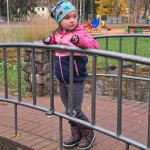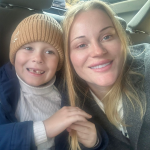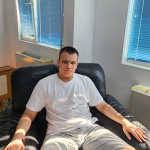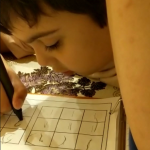What Are Early Signs of Autism in Childhood?
Early signs of autism in childhood can vary widely, but some common indicators often appear before the age of 2. These signs can be grouped into three main categories: social communication, behavior, and sensory processing. Here are some early signs to watch for:
1. Social Communication Challenges
- Limited eye contact: Infants or toddlers may avoid or have difficulty making eye contact with others.
- Delayed speech or language development: Children may not speak as much as their peers or may have difficulty with back-and-forth conversation.
- Lack of joint attention: Difficulty sharing focus on an object with others (e.g., pointing at something to show interest).
- Limited social interactions: May not engage in play with others or respond to social cues like a smile or hug.
- No or limited interest in other children: They might not seek play or interaction with peers.
- Difficulty understanding or expressing emotions: Limited use of facial expressions or gestures to convey feelings.
2. Behavioral Differences
- Repetitive behaviors: Engaging in repetitive actions such as hand-flapping, rocking, or lining up toys.
- Restricted interests: Intense focus on a specific topic or object, often to the exclusion of everything else.
- Resistance to change: Strong preference for routines and difficulty adapting to changes in environment or schedule.
- Unusual play: May not engage in typical pretend play (e.g., pretending a block is a car).
3. Sensory Sensitivities
- Hypersensitivity or hyposensitivity to sensory stimuli: Extreme reactions to certain sounds, lights, textures, or smells (e.g., covering ears or becoming upset by loud noises).
- Unusual responses to pain or temperature: Either an exaggerated response to pain or a lack of awareness of injury.
4. Motor Development Delays
- Some children with autism may have delayed motor skills, such as crawling, walking, or fine motor coordination (e.g., difficulty holding a pencil).
5. Other Signs
- Lack of social smiles or gestures: Some children may not smile in response to others or use gestures like waving or pointing.
- Atypical sleep patterns: Difficulty with sleeping, such as trouble falling asleep or waking up frequently.
- Unusual vocalizations or speech patterns: May repeat words or phrases in an unusual way or have atypical tone or pitch.
It’s important to note that children develop at different rates, and some of these behaviors may not necessarily indicate autism. However, if these signs are present and persist, it may be helpful to seek an evaluation from a pediatrician or developmental specialist. Early intervention is key in helping children with autism thrive.
Autism Treatment Center Videos
Autism treatment with own stem cells
Cord blood association congress
International Quality Crown
Autism Treatment Reviews
Autism treatment with own stem cells
The story of Alessandro (6 years old)
Autism Patient Testimonial - Stem Cell Treatment
Clients Testimonials

Feedback from Yulia, mother of Emily (7 years old) Read More

Feedback by Everita, Katrina’s mother (5 years old) Read More

Feedback from Igor, David’s father (12 years old) Read More

Feedback from Olga, Fedya’s mother Read More

Feedback from Natalia, Radomir’s mother (15 years old) Read More












